- Promotion of Science and Innovation – CEM (project lead; during 2008 – 2009, 2010 – 2011); the project is also a part of EPK 2012 in cooperation with the House of Science;
- The National Youth Network for Developing Research Values of Young People”SM-RIS” (22 partners, 10 of which are youth centers; EKTC is the head of the consortium network);
- The Young Ambassadors of Intercultural Dialogue “MAMD” (project partner);
- Defining the offer and setting the criteria for providers of eco-friendly didactic farms and establishing a management model for a didactic farm and a competence center in the field of the local development strategy TOTI LAS “DIKMT_in_KC”, with an emphasis on the inclusion of the youth in rural areas;
- Development and operation of a cross-border, innovative platform of experimental centers in cooperation with education institutions and the economy “EXP-ERT 2020”; (cooperation with the youth organization The Science Center Expi Kočuh (Austria));
- Interactive archaeological heritage of the Austrian and Slovenian Styria “InterArch-Steiermark” (cooperation with the professional organization Joanneum Graz Universal Museum).
International project EXP-ERT 2020
“Development and operation of a cross-border, innovative platform of experimental centers in cooperation with education institutions and the economy” (acronym EXP-ERT 2020)
The project represents a new form of strengthening strategy by means of inclusion and integration of the economy into a field of education, development, innovation and science research and placing emphasis on the youth in a cross-border region. The project enables the development and connection of cross-border potential through greater and deeper integration of activities. This in result makes space for new knowledge and acceleration of innovation, development and research values among the youth in order to achieve the EU’s goal as the “most competitive and dynamic knowledge-based economy in the world, which is capable of sustainable development with more and better jobs and greater social cohesion,” where the innovation of young people will be of crucial importance. This space is represented by experiment centers or science centers / i.e. science museums or hands-on science centers / which are coordinated by the project partners.
All the centers are meant for sensitizing young people to science, research, innovation and development activities in association with the economy and schools, as well as to promote science and develop the research values of young generations.
The EXP-ERT 2020 project will upgrade the current state of the cross-boarder region, which has been so far aimed mostly at supporting students, innovators, entrepreneurs and researchers over the age of 19, by adding the active inclusion of young people under 19 from elementary and secondary schools. This should increase the sensitization of young people to science and its understanding, technology and innovation, entrepreneurship and, consequently, joint development and performance of experiments in the form of traveling and standard exhibitions, which lay down the basis for easier introduction and integration of young people into existing and future development institutions and the economy of the cross-border region.
Project goals
1. Networking and improving communication between experiment centers, participating institutions and organizations active in the fields of the youth, education, development, research, science and development of research values of young people, and economies;
2. Establishing a cross-border innovative platform of experiment centers – a youth incubator;
3. Enhanced cross-border cooperation of experiment centers through additional training, joint development of traveling and interactive experiments, an online web-based tool and website;
4. Enhanced cross-border link between young people and economic entities, emergence of synergistic effects through thematic youth workshops, promotional events, and experimental interventions in public spaces at the locations of former border crossings (inside the Schengen facilities).
Leading partner : EKTC Maribor
Partners from Austria : EXPI, NAWImix
Več na www.exp-ert2020.com
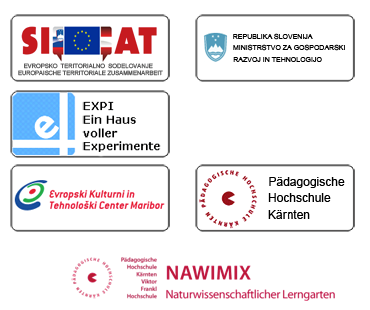
International project InterArch-Steiermark
The operational program of The Cross-Border Cooperation between Slovenia-Austria 2007-2013, and the cultural heritage in its centre, does not only have a specific economic role in the development of cultural tourism for the region, but it also plays an important role in shaping the regional identity in the program area.
Some weak points in this part of the program area are: slowly progressing cultural heritage revival, insufficient sustainability of cross-border initiatives and the poor condition of some of the cultural heritage objects.
By applying the framework of the 2nd Priority of the Operational Program Slovenia-Austria 2007-2013, the InterArch-Steiermark project will create conditions for long-term cross-border cooperation between cultural institutions and organizations in the program area. This objective can be met through continued intensive communication and frequent exchange of data between institutions in the program area. Speaking a common language and using the same digital tools play a key role in this aspect. New data on archaeological heritage in the program area will in that manner also find faster access to people living there and build a good platform for the new revival of cultural heritage and its economic utility.
The processing and digitalization of the Joanneum Universal Museum (Universalmuseum Joanneum) archives and their incorporation in the geographic information system (GIS) forms the core of the project and serves sustainable use in spatial planning, heritage protection and archaeological research in Slovenia.
That’s why the production of a bilingual digital tool is needed, which could also be used for better and faster professional processing of archaeological findings and effective management of archaeological heritage in the border area. With this tool, we would connect the newest technologies in the fields of database management, GIS (the geographic information system) and computer graphics.
The operational objectives of the project:
1. Networking and improving the communication between institutions active in the field of cultural heritage protection and management on both sides of the border; comparing, discussing and presenting public monument protection practices to the general public in the scope of meetings and congresses;
2. Digitalization of archival and archaeological finds from the Austrian and Slovenian Styria in the Joanneum Museum as well as their professional processing and publication; collecting archival documents on archaeological heritage of the border area in the archives of the antiquity collection kept in the Museum of Art and History (Kunsthistorisches Museum) and the archives of the Austrian Office for the Protection of Cultural Heritage (Bundesdenkmalamt Österreich) in Vienna;
3. Development of bilingual digital tools which will be used on both sides of the border to completely encompass the archaeological sites; through the internet portal, this tool will allow access to archaeological archives of the Joanneum Museum, both for the experts and interested public.
4. Connecting digital documentation of archaeological excavations with digitally collected museum objects; selected objects will be captured using new 3D measurement technologies.
5. Improved use of GIS (geographic information system) in the field of archaeology;
6. Field testing of digital tools on selected archaeological monuments in the selected border area, which will also produce promotional results for the general public, such as virtual reconstructions; the results will be used in the future in order to create new programs for the transfer of cultural heritage.
7. Exhibition of archaeological objects from Slovenia located in the Universal Museum Joanneum. The common historical development of Austrian and Slovenian Styria will be in that manner shown on authentic objects, spanning from prehistory to the time of the Roman Empire. The exhibition will be shown at Betnava Castle in Maribor as a part of the 2012 Cultural Capital Program. The exhibition will be accompanied by an artistic intervention in the public space and publication.
8. Austrian and Slovenian Styria will play a leading role in the current European discussion on the issues of archaeological heritage and returning such heritage to the countries of origin by holding the international conference.
More:
http://www.museum-joanneum.at/de/archaeologiemuseum/interarch-steiermark-1
Leading partner : Universalmuseum Joanneum GmbH ( http://www.museum-joanneum.at )
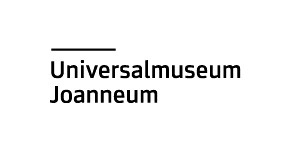
Partner 1 : EKTC Maribor

Partner 2 : Institut für Archäologie der Karl-Franzens-Universität Graz

Partner 3 : Zavod za varstvo kulturne dediščine Slovenije
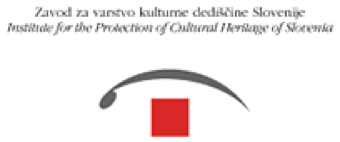
Partner 4 : Verein Kulturpark Hengist
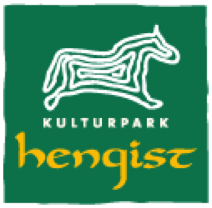
Partner 5 : Pokrajinski muzej Murska Sobota
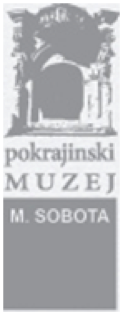
ERASMUS+KA2 I’m a Sport Entrepreneur, what R U?
We are a partner participant in the international project Erasmus * I am a Sports entrepreneur-what RU? “I’m an athlete entrepreneur” is an example of new generation projects run by young people. The project is aimed at including young people with fewer opportunities, where they can create their own new opportunities and develop entrepreneurship through sports. A target group of actively involved young people has been already formed from the Maribor Structural Engineering High School and the Osnovna Šola Borcev za severno mejo Elementary School. The results of the project should impact informal youth cultures in Europe in order to equip young people with the necessary entrepreneurial mindset.
Project Erasmus+ KA2, In-Vent
Event organization is one of the fastest-growing activities worldwide, and according to the latest research by the Certified Special Event Professional (CSEP) organization, $500 billion is spent on special events worldwide. In the current situation, successful event organizers remain successful by acquiring new skills and knowledge through short formal courses and working with employers and organizations in various sectors. The InVent project, in which the European Cultural and Technological Center Maribor Ltd. has been involved since November 2017, is innovative as it recognizes the competencies that event organizers need in their work. It includes recognizing standards among partner countries (Slovenia, England, Spain, Germany, and Latvia), conducting primary research by involving successful event organizers with the aim of preparing the basis for specialization in event organization, as well as testing the necessary knowledge and skills through pilot education and portfolio compilation, as well as developing educational materials.
The EKA University participates in the Erasmus+ Strategic Partnership Project InVent
Since November 2017, we have been participating in the Erasmus+ strategic partnerships program’s project “InVent – Partnership to develop VET educators in event management with a learner-centered approach.”
The project aims to improve the skills and competencies of vocational education teachers who work with event management courses, as well as to enhance event management education programs according to the labor market and the industry’s latest trends and requirements. The participation of the EKA University in the project is very important as it offers various event management-related courses in two professional study programs: the college-level program “Management of the entertainment industry” and the bachelor program “Cultural Management.”
The lead partner of the project is Gecko Programmes in the UK, while the project welcomes joint efforts of 10 partner organizations from Great Britain, Germany, Spain, Slovenia, and Latvia.
http://openeducationresource.invent.international/login/index.php
http://www.invent.international/project-team.html
International project Interreg V-A SI – AT, regioWIN
The Partnership of Slovenia, Styria (A) and Carinthia (A)
The general objective of the RegioWIN project is joint network building, promotion of new cross-sector and cross-border value chains and development of entrepreneurial networks for women. The core of its activities is to increase the efforts for B2B cross-border cooperation and internationalization in the program regions. The accompanying events and workshops are intended for female entrepreneurs from various business fields in order to establish new international market opportunities and new contacts, as well as to discover legal and financial aspects, while enriching their cultural knowledge. The activities are aimed primarily at companies run by women in peripheral areas with great potential. For intensive cross-border cooperation, it is necessary to remove the factors which negatively affect the development of such cooperation and create a favorable environment for female entrepreneurs and their participation.
The participants:
Styria (A): project lead (head of the partnership) – Innovation Region Styria GmbH (IRS)
Project partners in Styria (A): Freiraum Business Center Graz, Technologiezentrum Deutschlandsberg, Energie Center Lipizzanerheimat in Bärnbach
Project partner in Carinthia (A): Business Frauen Center in Klagenfurt
Project partner in Slovenia: Štajerska gospodarska zbornica, Evropski kulturni in tehnološki center Maribor in Ljudska univerza Murska Sobota
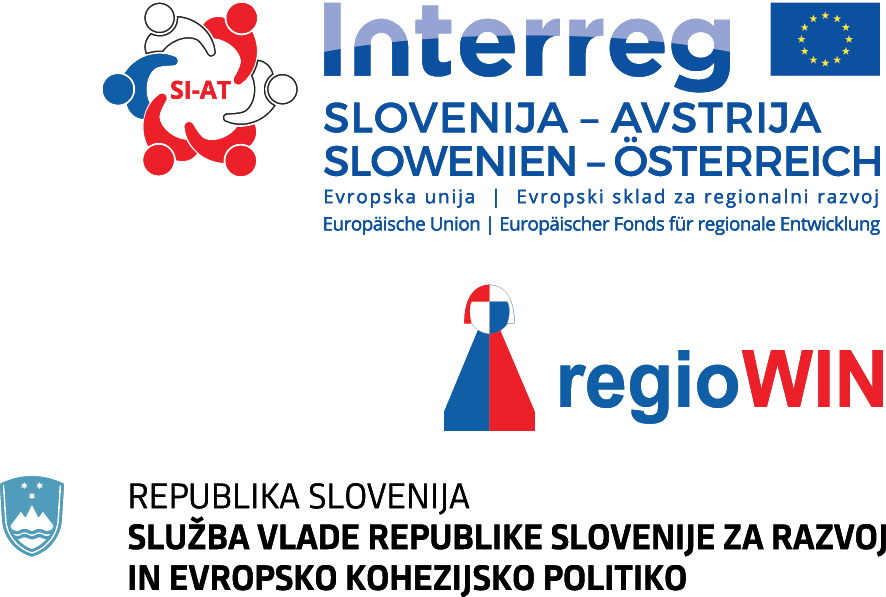
Public Call “Mentorship Schemes for Social Enterprises” – Enhancing Recognition Through Knowledge
On August 10, 2018, the Ministry of Economic Development and Technology published a public call for “Mentorship Schemes for Social Enterprises,” which is implemented within Priority Axis 9: “Social Inclusion and Poverty Reduction,” with specific objective 9.4.1: “Increase the scope of activities and employment in the social entrepreneurship sector” of the Operational Programme for the Implementation of the European Cohesion Policy for the period 2014-2020. The subject of the public call is co-financing eligible costs of operations, whose activities will focus on the development and professionalization of social enterprises through the involvement of individuals in mentoring programs or training individuals to carry out such programs.
The purpose of the public call is the transfer of knowledge from mentors to employees in social enterprises, with an emphasis on employees from vulnerable groups, strengthening their competencies, and consequently ensuring the sustainable existence of social enterprises in the market.
Objectives:
- Increasing the knowledge and competencies of employees in social enterprises
- Development of social entrepreneurship activities
- Inclusion and increased activation of vulnerable groups in social enterprises
- Reducing social exclusion and the risk of poverty by promoting the inclusion of vulnerable target groups
- Maintaining existing and creating new jobs in social enterprises
- Ensuring the sustainable operation of social enterprises in the market
Operation value: EUR 30,660.00
The operation is partially funded by the Ministry of Economic Development and Technology.
The operation is partially funded by the European Union, specifically from the European Social Fund.
EU dedicated funds represent 80% of the total eligible costs, while 20% are dedicated funds from Slovenian participation.
Link to the European Structural and Investment Funds website.
Development of Volunteering in Maribor Through Education, Networking, Promotion, and Structural Support
In June 2019, we started implementing the Development of Volunteering in Maribor project, which will last until September 2020. The project is co-financed by the Ministry of Public Administration within the public call for co-financing projects for the development and professionalization of NGOs and volunteering.
The purpose of the Development of Volunteering in Maribor project is to address the need for more quality organized processes of volunteer work in local volunteer organizations, especially in the fields of education, social activities, culture and arts, and to provide greater structural support for volunteering in the local environment. This is achieved through raising the professionalism of volunteer organization mentors, through sustainably oriented cooperation between volunteer organizations at home and abroad, and between volunteer organizations and the Municipality of Maribor and other public institutions. Furthermore, the project contributes to greater connectivity and stability of volunteer organizations in the local community. Within the project, four volunteer mentors and one volunteer coordinator are employed. Project partners include: Pekarna Magdalenske mreže, Društvo TOTI DCA Maribor, so.p, European Cultural and Technological Center Maribor, so.p, Društvo Hiša!, so.p, and Zavod MARS Maribor.
The project activities are divided into thematic areas, which are interwoven over time. The main project activities are:
- Strengthening and professionalizing volunteer NGOs by establishing sustainable jobs,
- Training volunteer mentors in organizations in project partnership,
- Establishing internal development strategies for volunteering in partner organizations,
- Introducing a new model for monitoring and evaluating volunteering,
- Preparation of a volunteering development strategy for the City of Maribor,
- Promoting volunteering through joint activities,
- Networking between volunteer NGOs and their networking with public institutions,
- Development of a didactic tool for evaluating quality.
Project indicators are set as follows:
- Preparation of a volunteering development strategy for the City of Maribor.
- Development of social innovation in the form of introducing a unified model for monitoring/evaluating volunteering in volunteer organizations in the local environment.
- Developed internal volunteering strategies in volunteer organizations participating in the project for the purpose of quality organized volunteering processes.
- Implementation of regular intervisions for newly employed volunteer mentors in project partner organizations.
- Establishment of joint activities of volunteer organizations participating in the project as a result of applying for an international call.
Young People in Transition to Green Energy
“Promoting Creative Cultural Industries – Center for Creativity 2020 – 2021” (JR CzK 2020-2021 – OP20.06849)
Purpose: We have developed a didactic tool that promotes the use of renewable energy sources for educational purposes. The didactic tool will help users visualize the complex field of renewable energy sources in a dynamic and understandable way and positively impact their behavior in the real world. With our didactic tool, we aim to educate young people, particularly, about the possibilities of acquiring renewable energy sources in both broader and narrower contexts and actively involve them in building a new energy system through learning. We aim to facilitate their easier and more suitable understanding of environmental issues in today’s world.
Objectives: We aim to involve as many young people as possible in early solving of environmental issues. Therefore, we target elementary and high school students and interested public with the didactic tool, allowing them to explore the significance of the addressed issue through their own experimentation and providing enough information before deciding on further career paths and study choices. The presented innovative didactic tool has a significant sustainable effect, as young people require practical examples, models, and innovative didactic tools in their education, which is much more suitable for current generations than traditional classroom learning. The sustainability of the results lies in acquiring knowledge in the field of energy-environmental issues and concrete challenges for reducing energy consumption, which users can imply in their daily lives.
Financial Support: €40,000
Mentor: Rok Colarič
The investment is co-funded by the Republic of Slovenia and the European Union from the European Regional Development Fund.
Waste as a Source of Secondary Raw Materials – Poly Circularity
The purpose of the POLY CIRCULARITY project is to develop innovative technologies for chemical and biochemical degradation of waste packaging into high-quality secondary raw materials with added value for independent use (gases, chemicals, oils/fuels, etc.) or incorporation into new products, such as biopolymers. We will focus on waste packaging of natural origin from cellulose/lignocellulose and synthetic/plastic packaging (PET, PA, PP, PE, XPE, etc.). The main goal of the project is to establish new advanced circular processes (new circular business models) for recycling waste plastic/natural packaging, which can significantly contribute to increasing material efficiency and added value of the obtained products. The result of the project will be high-quality secondary raw materials for use in new products, intended for the domestic and global market. The operation began on September 1, 2019, and is expected to last until May 31, 2023. The total operation co-funding amounts to €2,800,486.22. The investment is co-funded by the Republic of Slovenia and the European Union from the European Regional Development Fund (link to the EU Funds website).
Student Innovative Projects for Social Benefit: Old Materials in New Form
At the European Cultural and Technological Center Maribor, we are involved in the SIPK project titled “Old Materials in New Form”. The project includes students from various fields of study at the University of Maribor. The aim of the project is to raise awareness among young people about proper consumer thinking and the problem of environmental pollution with various waste materials. Through creative and innovative solutions, the participating students will become familiar with materials, their properties, possible processing, and analyze waste management practices in their environment. The students will conduct creative workshops and prepare materials to raise awareness about the problem of waste accumulation, irresponsible individual attitudes toward the environment, and proper consumer thinking, and transfer the acquired knowledge to elementary and high school students. They will also analyze areas of textile materials and their care, as well as explore possibilities for reusing various types of waste and waste packaging.
The investment is co-funded by the Republic of Slovenia and the European Union from the European Social Fund.
Follow us on Facebook: Stari-materiali-v-novi-podobi